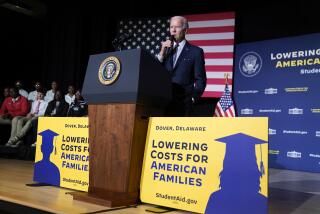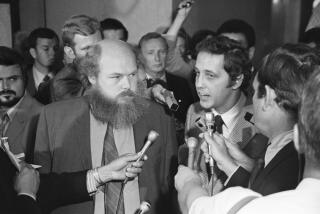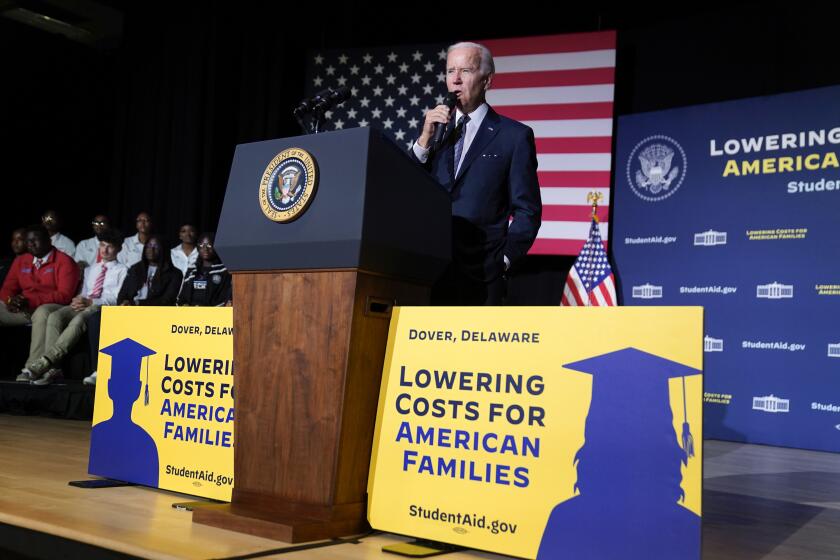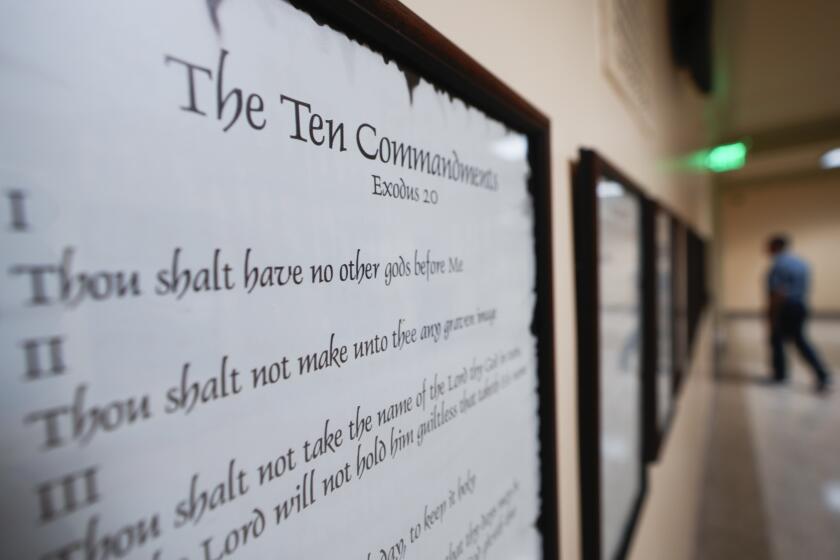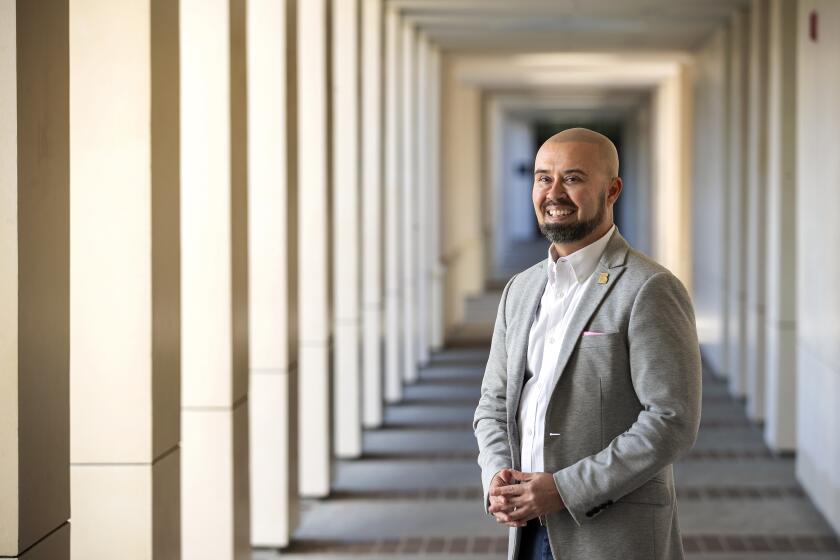Occidental College Rejects Student Petition for Divestiture
Occidental College rejected a petition from student activists to divest stock the school holds in five firms with South African operations, college President Richard C. Gilman announced last week.
A special committee assigned to examine the issue voted unanimously April 1 against selling the college’s holdings in Chevron, Texaco, Ford Motor Credit Co. and the Decatur Income Fund, Gilman said. In an earlier vote, the Corporate Responsibility Committee--composed of nine trustees, a teacher and a student--decided to keep holdings in Avery International Corp.
“The Corporate Responsibility Committee was unable to find that these companies caused demonstrable social injury simply by virtue of their operation in South Africa,” Gilman said. He added, however, that the committee agreed to consider future investments in firms without South African ties.
David Peritz, an Occidental senior and co-chairman of the Anti-Apartheid Coalition of students and faculty, denounced the committee’s decisions and dismissed its lengthy review as “a smoke screen.”
“It essentially kept the heat off them for a year,” he said. “We were more than willing to give the process a try. We were not terribly optimistic from the outset. Unfortunately, they confirmed our initial point of view.
“These companies are dealing directly with the military, which provide significant strength” to the South African government that allows it to resist international pressure against apartheid reform, Peritz added. “Yet the Corporate Responsibility Committee cannot find significant social injury.”
Peritz estimated that about 10% of the school’s $110-million endowment is invested in companies with South African ties. Administrators, however, declined to disclose the worth of those investments.
Conflict Claimed
The committee’s refusal to divest holdings in the Pasadena-based Avery International Corp. proved particularly controversial. The company’s chairman and chief executive officer, Charles D. Miller, is a member of the university’s board of trustees and of the Corporate Responsibility Committee.
Peritz said the relationship presented a conflict of interest.
But Carl Vance, vice president of business and finance at Occidental, disagreed.
“Mr. Miller removed himself from the committee meeting when the discussion about Avery was taking place. He did not vote. I don’t see how that’s a conflict of interest,” he said.
The South African divestment issue has been percolating at the Eagle Rock campus for more than a decade. But it was not until the escalation of student protests last year that the Corporate Responsibility Committee agreed for the first time to consider divestment.
Backed Down on Shantytown
Last May, students and college officials locked horns over the construction of a four-shack shantytown depicting the living conditions of some blacks in South Africa. Administrators threatened students with suspension if the shacks were not torn down before the June graduation. However, college officials finally relented and allowed the shantytown to remain through the graduation ceremonies.
In another protest, students set up an alternate endowment fund for alumni who want to give the college money, but do not want their money invested in companies that conduct business with South Africa. Since its creation last May, the fund has attracted more than $3,000 in donations, Peritz said.
The Anti-Apartheid Coalition, which meets weekly, is planning more rallies and protests, Peritz said. Additionally, some members of the group are organizing a boycott of Occidental’s 100th birthday celebration activities on Monday, he said.
“This year has not been spectacular, mainly because of the (review) process,” said Peritz, “but next year, things will probably catch fire again.”
More to Read
Start your day right
Sign up for Essential California for news, features and recommendations from the L.A. Times and beyond in your inbox six days a week.
You may occasionally receive promotional content from the Los Angeles Times.

